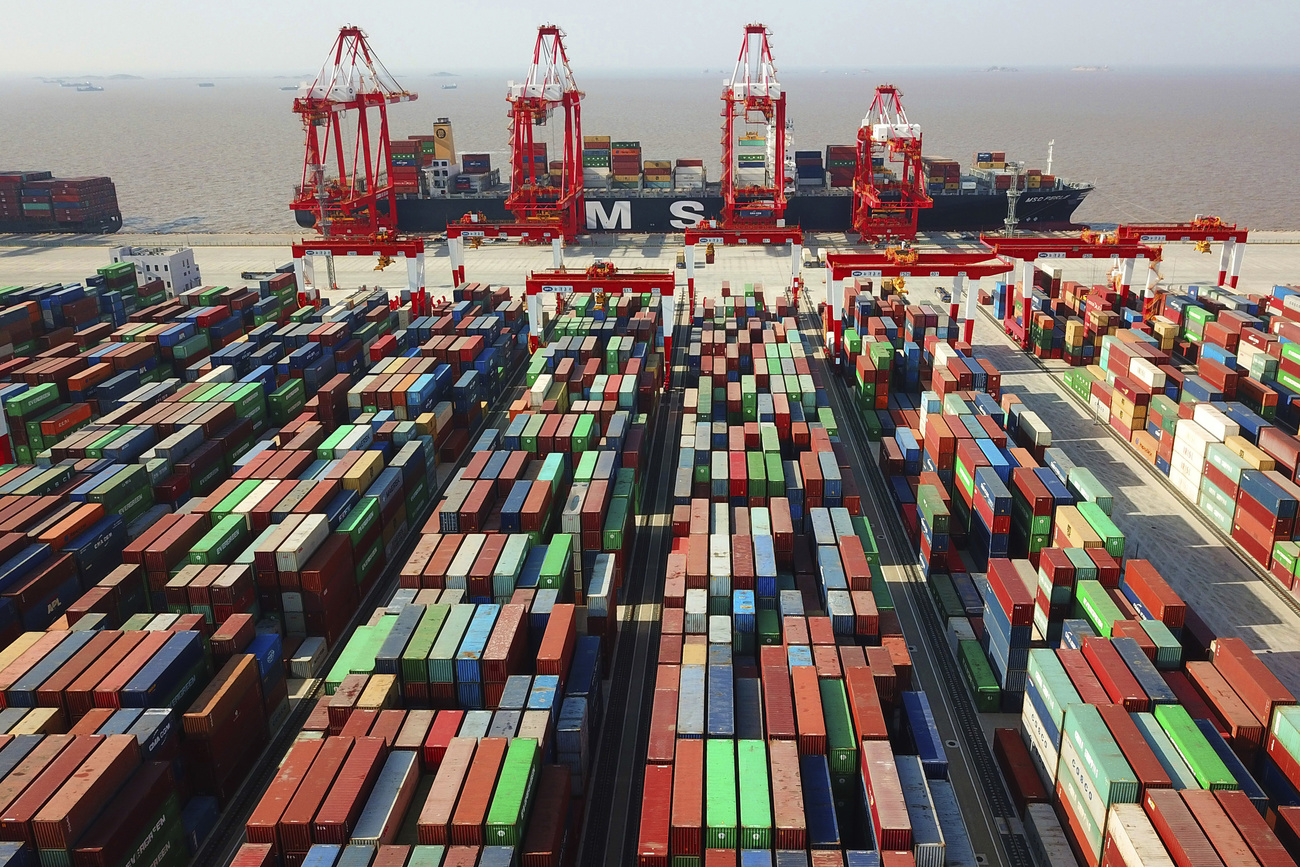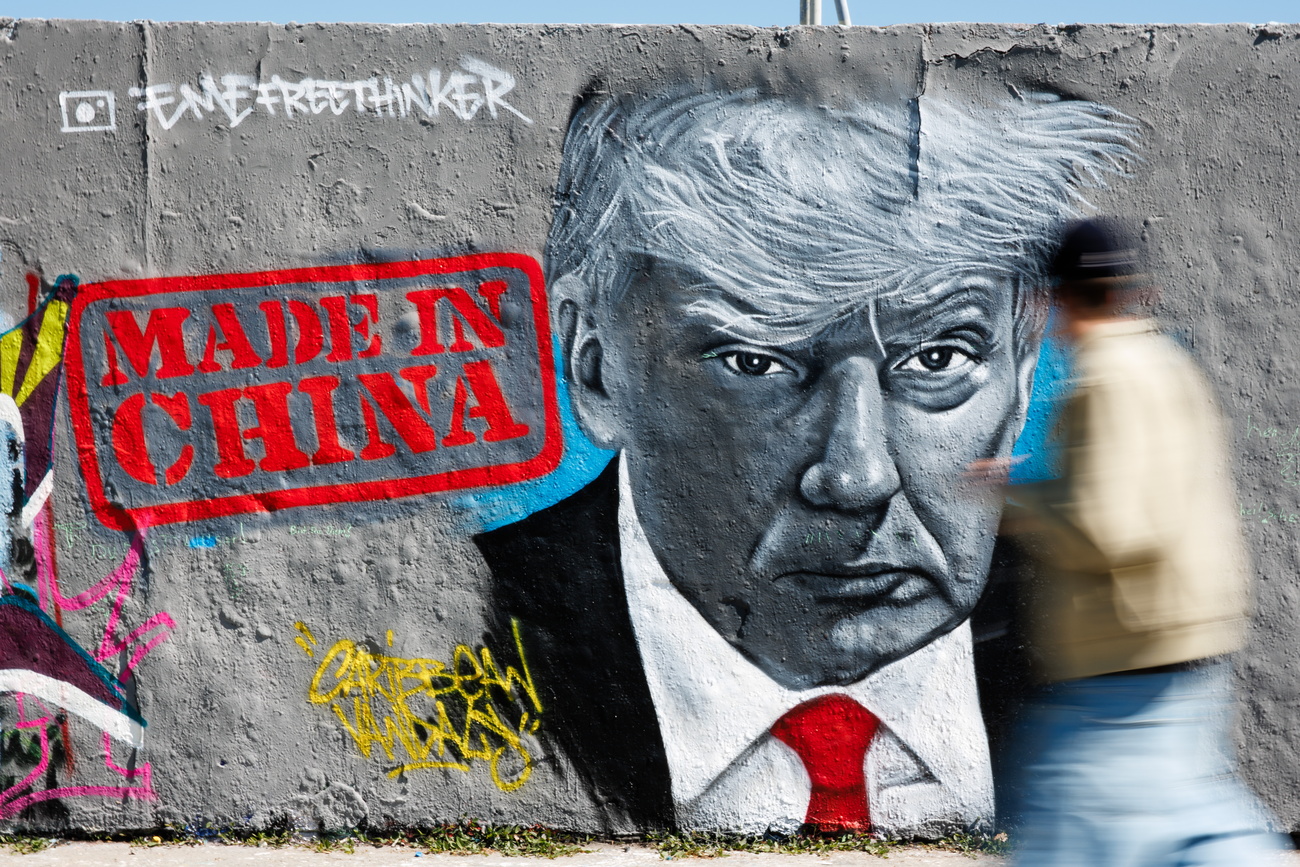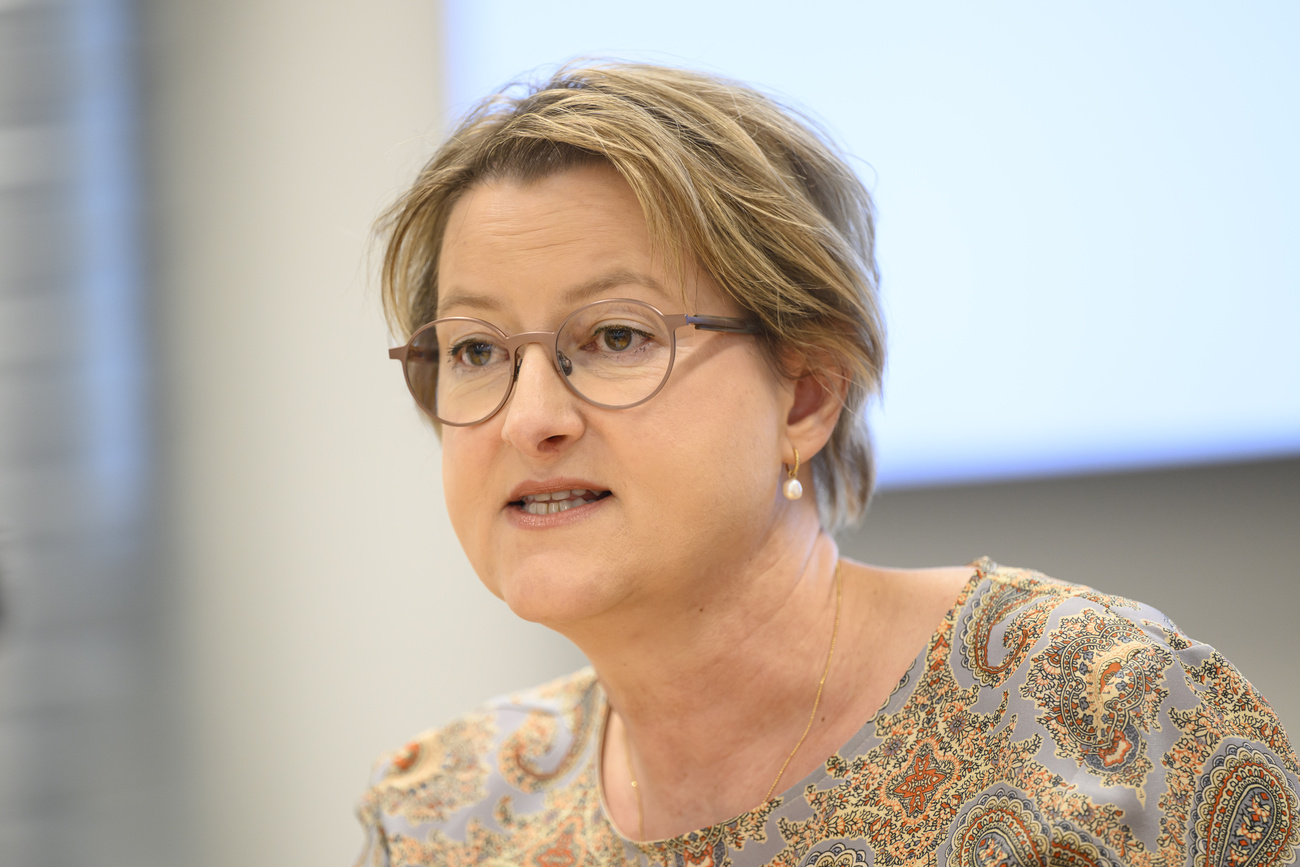
Switzerland and US agree to accelerate tariff talks

Switzerland has a commitment from the United States to further accelerate talks on tariffs. After a meeting with US ministers in Geneva on Friday, the Swiss president intends to present Washington with a declaration of intent in the next two weeks.
+Get the most important news from Switzerland in your inbox
Switzerland is seeking to avoid additional customs duties of 31% on its exports to the US, suspended until 9 July by US President Donald Trump. The Swiss economy and jobs are at stake.
“It’s still a little early” to say that Switzerland is “out of the woods”, Karin Keller-Sutter told the press at the end of a meeting with US Treasury Secretary Scott Bessent and Trade Representative Jamieson Greer. As long as an agreement is not on the table and has not been signed, we must remain cautious, she added.

More
Trump tariff shock: how Switzerland is positioning itself
But Switzerland feels it has made a step forward with Washington. “We can say that it is encouraging that the Americans want to speed up the process,” said Keller-Sutter, the Swiss finance minister who holds the rotating Swiss presidency this year.
From a group of 15 countries with which Washington wanted to move forward as quickly as possible, the Alpine nation is now showing determination to be among the next in line, after the British, for an agreement in principle. London reached this agreement on Thursday.
No discussion on concessions
Perhaps even “the second country”, according to Keller-Sutter. “We have been clearly told that the aim is to speed things up,” added Swiss Economics Minister Guy Parmelin, who attended the meeting.
State Secretaries Helene Budliger Artieda and Daniela Stoffel will be tasked with rapidly taking a declaration of intent to Washington. Within “one to two weeks”, according to Swiss president.
The two delegations have not yet really got to the heart of the concessions that could be demanded of Switzerland. “We’re not there yet,” said Parmelin.

More
US and China to launch formal trade talks
On agricultural issues, he pointed out that tariff and non-tariff aspects could be discussed. But he also mentioned the possibility of reducing costs and barriers on exports of medical devices. A fortnight ago in Washington, he relayed US interest in more Swiss investment in pharmaceuticals and biotechnology.
Prior to the US delegation, the two Swiss ministers met with Chinese Vice-Premier He Lifeng. They discussed an update on the negotiations to revise the free trade agreement with Beijing. These talks will be all the more important if Switzerland is faced with additional US tariffs. A second round of technical talks will be held in Switzerland in July.
Dialogue welcomed by the WTO
Friday’s two meetings were organised on the eve of an initial attempt in Geneva to de-escalate the trade war between Washington and Beijing. Trump has imposed additional tariffs of 145% on China, and sometimes as much as 245% on certain goods, while the Asian powerhouse has retaliated with 125%.

More
China–US tariff talks place Swiss diplomacy on centre stage
Keller-Sutter said she was “delighted” at the success of the Swiss good offices, calling on the “Holy Spirit” to inspire the two delegations after working to elect Pope Leo XIV. “We can imagine anything, even a suspension of tariffs” between Washington and Beijing, according to Parmelin.
Previously, Trump had suggested that the tariffs could be reduced to 80%. Everything will depend on the discussions led by his Treasury Secretary.
The head of the World Trade Organisation (WTO), Ngozi Okonjo-Iweala, welcomed a “positive and constructive step towards de-escalation” in the dialogue scheduled for this weekend. She called for a “lasting” discussion between the two countries. According to the WTO, the fragmentation of world trade into two blocs could lead to a 7% contraction in real Gross Domestic Product (GDP).
Translated from French by DeepL/sb
How we work
We select the most relevant news for an international audience and use automatic translation tools such as DeepL to translate them into English. A journalist then reviews the translation for clarity and accuracy before publication. Providing you with automatically translated news gives us the time to write more in-depth articles. The news stories we select have been written and carefully fact-checked by an external editorial team from news agencies such as Bloomberg or Keystone.
Did you find this explanation helpful? Please fill out the short survey below to help us understand your needs.
Don’t miss your chance to make a difference! Take our survey and share your thoughts.

In compliance with the JTI standards
More: SWI swissinfo.ch certified by the Journalism Trust Initiative






























You can find an overview of ongoing debates with our journalists here . Please join us!
If you want to start a conversation about a topic raised in this article or want to report factual errors, email us at english@swissinfo.ch.